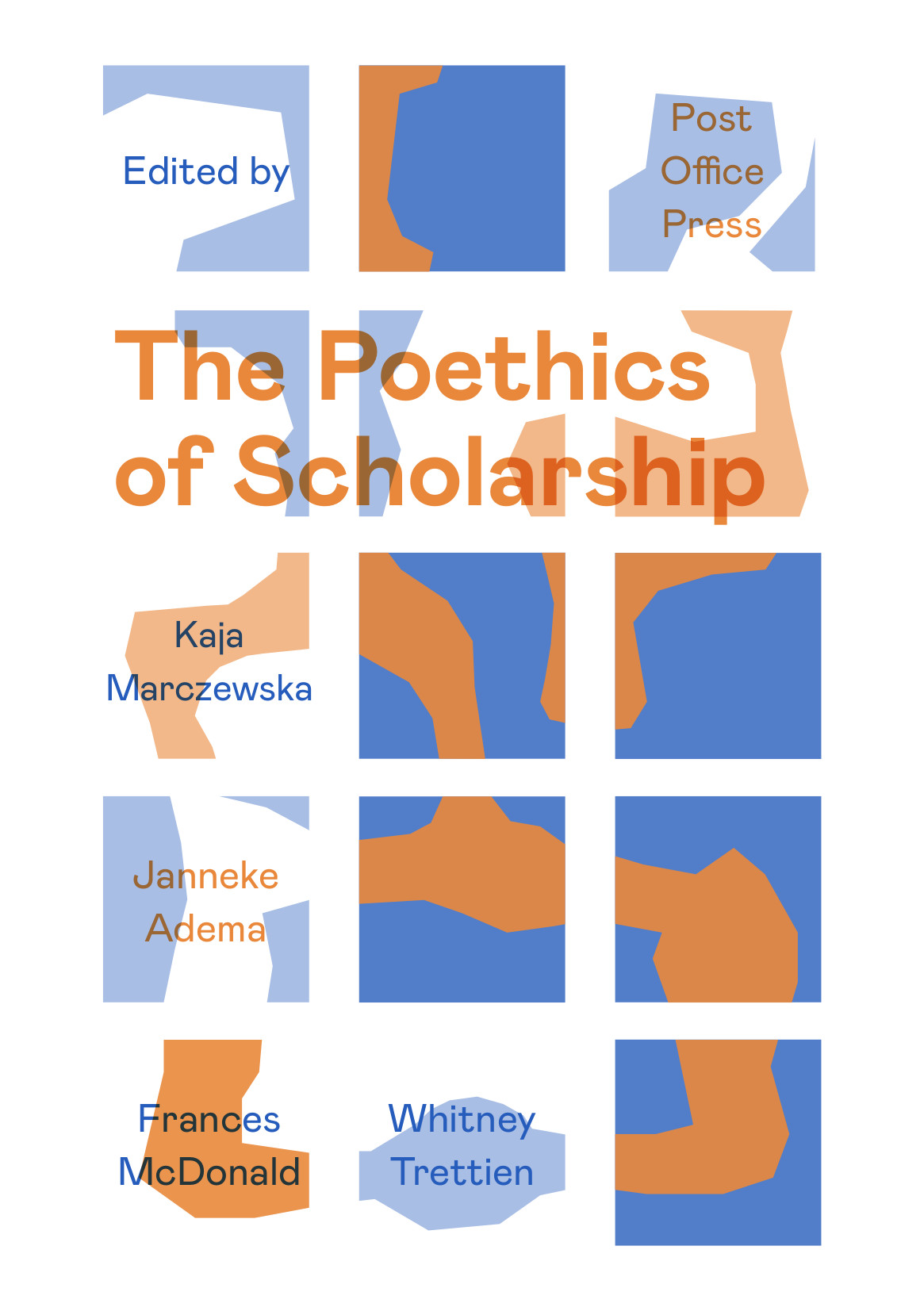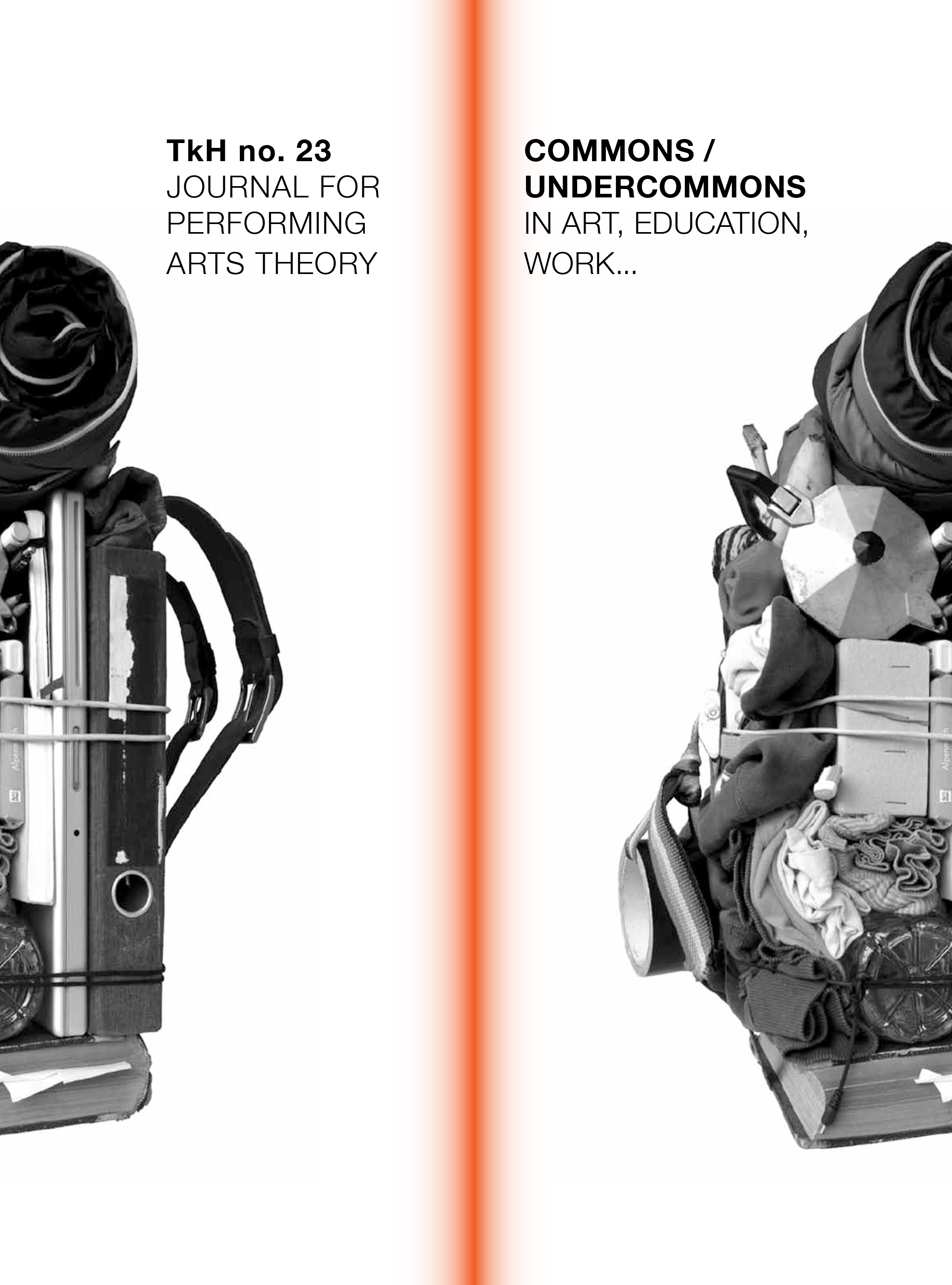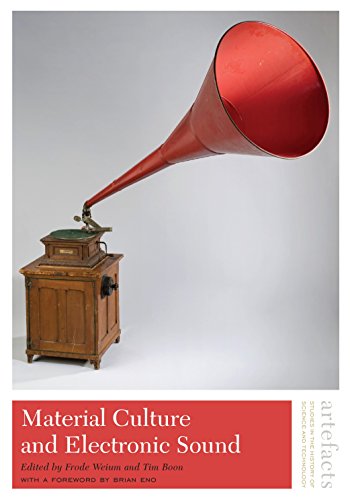Post Office Press (ed.): The Poethics of Scholarship (2018)
Filed under book | Tags: · aesthetics, care, ethics, experimental publishing, open access, poetics, publishing, scholarship

“This pamphlet explores ways in which to engage scholars to further elaborate the poethics of their scholarship. Following Joan Retallack, who has written extensively about the responsibility that comes with formulating and performing a poetics, which she has captured in her concept of poethics (with an added h), this pamphlet examines what connects the ‘doing’ of scholarship with the ethical components of research. Here, in order to remain ethical we are not able to determine in advance what being ethical would look like, yet, at the same time, ethical decisions need to be made and are being made as part of our publishing practices: where we publish and with whom, in an open way or not, in what form and shape and in which formats. Should we then consider the poethics of scholarship as a poetics of/as change, or as Retallack calls it, a poetics of the swerve (clinamen), which continuously unsettles our familiar notions?
This pamphlet considers how, along with discussions about the contents of our scholarship, and about the different methodologies, theories and politics that we use to give meaning and structure to our research, we should have similar deliberations about the way we do research. This involves paying more attention to the crafting of our own aesthetics and poetics as scholars, including a focus on the medial forms, the formats, and the graphic spaces in and through which we communicate and perform scholarship (and the discourses that surround these), as well as the structures and institutions that shape and determine our scholarly practices.”
Contributions by Janneke Adema, Kaja Marczewska, Frances McDonald and Whitney Trettien.
Publisher Post Office Press & Rope Press, Coventry, 2018
Creative Commons BY 4.0 License
34 pages
TkH, 23: The Commons / Undercommons in Art, Education, Work … (2016)
Filed under book, journal | Tags: · art, commons, curating, education, knowledge, politics, subjectivation, undercommons, university, work

“The fifteen pieces in this issue are the result of a somewhat peculiar endeavor. Between May 29 and June 1, 2014, we held a conference at Frankfurt Lab under the title of The Public Commons and the Undercommons of Art, Education, and Labour. Its title reflected our concerns about diagnosing the current predicament of higher education in the arts and humanities, artistic production, and cultural work. To summarize briefly, two turns have lately merged that characterize the transformation of work, knowledge, and subjectivation processes across the arts field and the Academy: the educational and the curatorial turn. While the educational turn has yielded a new academic (professional) valorization of artistic praxis (in the so-called creative or practice-based PhDs), coupled with a proliferation of degrees and a prolongation of financialized, debt-stricken study (also as a temporary deferral or relief from the market and its projective temporality), the curatorial turn has corresponded to a neoliberal style of managing both art and education, reducing time and attention, critical and transformative (poetic) engagements with one’s own art and study.” (from the Introduction)
With contributions by Harutyun Alpetyan, Gigi Argiropoulou, Stefano Harney, Gal Kirn, Boyan Manchev, Randy Martin, Fred Moten, Isabel de Naverán, Norbert Pape, Nina Power, Goran Sergej Pristaš, Jason Read, Jan Ritsema, Ana Vujanović, and Josefine Wikström.
Edited by Bojana Cvejić, Bojana Kunst, and Stefan Hölscher
Publisher TkH (Walking Theory), Belgrade, and Institute for Applied Theatre Science, Justus Liebig University, Giessen, April 2016
Creative Commons BY-NC-SA 3.0 Serbia License
ISSN 1451-0707
72 pages
Frode Weium, Tim Boon (eds.): Material Culture and Electronic Sound (2013)
Filed under book | Tags: · electronic music, media technology, music, musical instruments, science, sound, technology

“This eighth volume of the Artefacts series explores how material culture has affected music and sound. Technological innovations in music that were originally created to solve existing problems have ended up expanding the range of what can be done musically and changing the landscape of music. Boon and Weium present a collection of essays exploring technological innovations and their effects on musical culture. Contributors include composers, performers, musicologists, and scientists, providing diverse insights into the nature of music.”
Foreword by Brian Eno
Publisher Smithsonian Institution Scholarly Press, Washington, DC, 2013
Artefacts: Studies in the History of Science and Technology series, 8
ISBN 1944466088, 9781944466084
xvii+293 pages
PDF (30 MB)
Comment (0)
